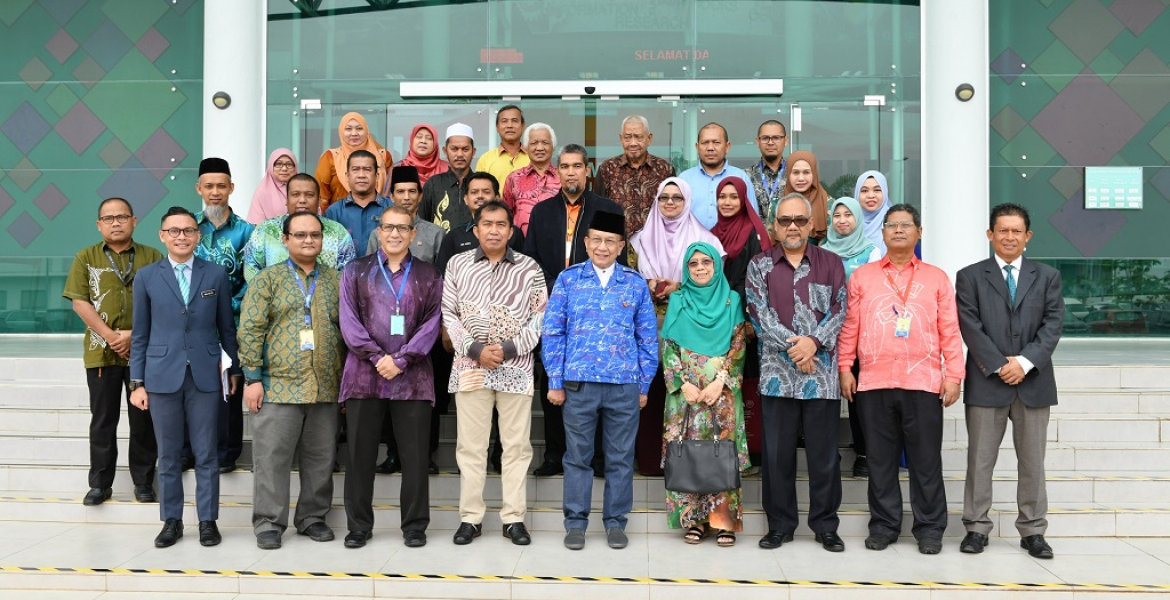‘Everyone’s responsible to uphold dignity of National Language’
Teachers, lecturers, educators and parents alike will have to play their exemplary roles in upholding the dignity and conception of the Malay Language among the younger generations in the country today.
The prominence of the Malay Language as the country’s National Language is sanctified by Article 152 of the Federal Constitution – ever since the de-colonization of the Federation of Malaya on August 31, 1957, and the formation of Malaysia on September 16, 1963.
According to the highly regarded Malay Language expert, Professor Emeritus Datuk Dr. Nik Safiah Karim, the language profile of a true Malaysian citizen should include having a good command of the national language, and mastering of the global lingua franca, English; and if possible, acquiring third and fourth other widely-spoken languages.
Speaking at a scholarly serial talks organized by Universiti Malaysia Pahang (UMP) recently, Professor Emeritus Datuk Dr. Nik Safiah expounded that a national language is the flagship symbol of a nation’s sovereignty and the identity of her citizen, whilst English is the communication instrument with the outside world, as well as the fundamental language to access knowledge and pursuit of life-long education.
“On that note, aside from taking pride in loving and mastering the national language, as Malaysians, we should also acknowledge the importance of English and master it, while simultaneously upholding the national language as the key to our national unity,” she stressed.
The existing pluralism of ethnicity, religion and culture has shaped the characteristics of Malaysia population landscape, while at the same time, poses a unique challenge in building national identity and sustainable unity – but fortunately, Professor Emeritus Datuk Dr. Nik Safiah said the drive to promote national language became its means to universally-unparalleled union.
“The drive for a national identity has to be ingrained and continuously reinforced throughout childhood – which, ultimately, will create a sense of pride and love for the national language and country,” emphasized the linguist.
“Today, as we move forward into the 21st century, we are faced with the challenges of reinventing a national identity under the New Malaysia era – which is also engulfed in the era of globalization, and science and technology – when the importance of promoting unity and mastering of English is intertwined,” she added.
During the talk, Professor Emeritus Datuk Dr. Nik Safiah also shared the history of the Malay Language, when inscriptions on stones were discovered as early as 7th century in Sumatera, Indonesia, and 14th century in Kuala Berang, Terengganu.
In between the two discoveries, she said, in the 13th century, Islam finally reached the shores of the Malay archipelagos, and thereafter, the Muslim-Malay excellence and cultural centres began to sprout at the capitals of territories under the rule of Samudera Pasai (1280-1400), Melaka (1400-1511), Aceh (1511-1650) and Johor-Riau (1650-1800).
The scholarly serial talks dubbed “Siri Bicara Cendekiawan Mulia UMP” is organized by the Association of Academic Staff (PAKAD), in collaboration with the Office of Vice-Chancellor (PNC).
Discussing the theme “Bahasa Melayu dan Pemerkasaan Identiti Nasional dalam Era Malaysia Baharu”, or loosely translated as “The Malay Language and Reinforcement of National Identity under the New Malaysia Era”, the scholarly serial talk held at UMP Library on July 12, 2019, was moderated by the Head of Human Sciences Department of the Centre for Modern Languages & Human Sciences (CMLHS), Associate Professor Dr. Hassan Ahmad.
The second speaker for the day, renowned Malay Language proponent and founder of Yayasan Budi, Tan Sri Dr. Rais Yatim, said aside from fulfilling the tertiary learning objectives set by the Ministry of Education (MoE), local public institutions of higher learning should also shoulder the responsibility of upholding the dignity of the Malay Language, employing it as a daily communication tool and applying the right linguistic terms appropriately.
“In addition, the Malays themselves should take pride in speaking in Malay, and collectively, practice the Malay culture, while promoting its arts and traditions, including traditional attires,” Tan Sri Dr. Rais emphasized.
“What is practically alarming and worrisome nowadays, we no longer find books, technical manuals and printed materials, which used to be translated into Malay by Dewan Bahasa & Pustaka, for the purpose of teaching and learning,” he lamented.
Tan Sri Dr. Rais raised his concerns that the Malay Language is seen lagging behind, in its application and implementation, especially in the world of trade and commerce.
“In fact, even roads and residential areas are no longer named using the Malay Language,” he bemoaned.
Tan Sri Dr. Rais proposed that utilization of the Malay Language in communal interactions should be promoted to be the norm, and that its usage should not be mixed up with other languages.
“A national identity is strictly linked to the national language, and henceforth, such national identity could never be bought and sold.”
The “Siri Bicara Cendekiawan Mulia UMP” talks is a monthly programme showcasing in-depth discourse among authoritative subject matter figures from within the country and from abroad.
These figures will speak on and dissect the current state of affairs of a particular theme, across all dimensions and from every angle of perspectives, for the benefits of those at UMP, specifically, and the surrounding communities, generally.
The scholarly serial talks is part and parcel of UMP’s commitments to transform the university into an open court of intellectual discourses, complete with various activities of mature debates as well as sanely discussions.
The July talk was graced by UMP Chairman, Dato’ Sri Ibrahim Ahmad; UMP Vice-Chancellor, Professor Ts. Dr. Wan Azhar Wan Yusoff; and PAKAD President, Mohd. Hairul Ab Rahim.
It also saw attendance of staff from Centre of Foundation Studies of International Islamic University of Malaysia (IIUM), Yayasan Budi, Pahang State corporations of Library and Museum, Pahang Hall of Malay Literature, as well as teachers and educators from the surrounding primary and secondary schools in Pekan.
- 335 views



 Reports by:
Reports by: 






